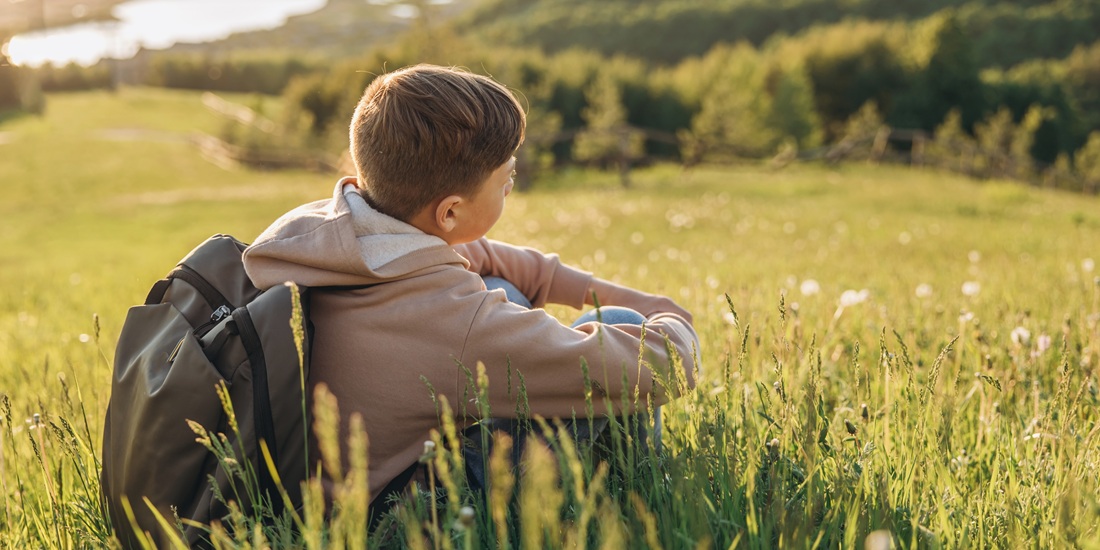Spending time outdoors improves young people’s health
Stress is a global epidemic that can be caused by a sedentary lifestyle. One solution is obvious.
As a general practitioner, I increasingly encounter teenagers struggling with insomnia, concentration problems and elevated stress levels. This is a worrying trend.
At the same time, the use of ADHD medication has increased by over 170 per cent in the past decade, indicating clearly that many young people need help coping with a hectic daily life characterized by digital eye strain, stress and sleep problems.
Stress-related illnesses are currently one of the world’s biggest public health problems. The World Health Organization (WHO) has classified stress as a 21st century health epidemic and estimates that by 2030, stress will become the leading single cause of sickness absence globally.
A recent report by the Gallup World Poll, which regularly measures stress and mental health around the world, estimates that around 40 per cent of the world’s population experiences high stress levels on a daily basis. One in three people worldwide may experience chronic stress or stress-related illness, highlighting just how prevalent the problem is.
- You might also like: What does it do to children when parents are always distracted by their phones?
Screen time causes stress among young people
In Norway, approximately 26 per cent of lower secondary school pupils and 36 per cent of upper secondary school pupils report experiencing stress on a daily basis.
These are alarming figures, reflecting that young people are particularly vulnerable. At the same time, research shows that teenagers sleep an average of 1.5 to 2 hours less than the recommended 8–10 hours. Several studies indicate that increased use of social media, screen time and digital technology are significant factors in this reduction in sleep.
Using screens right before going to bed inhibits the production of melatonin, the hormone that regulates sleep, and can prolong the time it takes to fall asleep, cause sleeplessness, stress and worries.
We are not designed to spend up to 90 per cent of our time indoors, surrounded by screens, plastic and artificial light.
Some studies suggest that young people may lose between one and two hours of sleep a night because of this. The result is a conditioning of the body into a state of constant exhaustion, leading to heightened stress, weakened immunity, difficulty concentrating, and mood swings.
Stress is an epidemic
The global health landscape shows that stress is already an epidemic, and the WHO estimates it will become the leading single cause of illness and sickness absence in the years ahead. In Norway, young people are particularly vulnerable – many experience stress every single day and sleep problems that can lead to chronic illness.
These are powerful signals telling us that we need to do something.
Historically, humans are deeply connected to nature. We are not designed to spend up to 90 per cent of our time indoors, surrounded by screens, plastic and artificial light.
- You might also like: Certain young people more prone to anxiety and depression
‘Forest bathing’ strengthens the immune system
Research shows that spending time in among trees – a practice known as ‘forest bathing’ or ‘shinrin-yoku’ – is a simple yet powerful way to boost the immune system, reduce stress, and improve sleep.
Forests function as a collaborative network where trees communicate, exchange nutrients and information, and in response to threats, send signals through fungal roots known as the ‘Wood Wide Web’. This natural network makes the ecosystem dynamic and adaptable – something we humans could learn a lot from.
Studies show that when people spend time in the great outdoors, the activity of NK cells (Natural Killer cells) increases. These cells are crucial for fighting viruses and cancer. Spending time in forests has been shown to reduce stress hormones, improve sleep quality, and strengthen the immune system. This is well documented by research from Japan, Canada, the Netherlands and other countries.
Spend more time outdoors
Norway should take note. Schools, parents and society in general must ensure that children and young people spend more time outdoors, while also reducing screen time – especially right before bed. By promoting outdoor activities and teaching that takes place in natural environments, and by consciously harnessing the healing power of nature, we can help reduce stress, improve sleep, and potentially reduce the need for medication and healthcare services in the future.
Let us take care of ourselves by taking care of the fountain of health and harmony that nature offers – before it is too late.
This is a collective task. Health professionals, parents and society as a whole must all acknowledge that there is a connection between digital overstimulation, sleep deprivation, stress and health. We must take active steps to ensure the next generation spend more time outdoors and less time staring at screens, and help young people experience nature and its beneficial effects.
Let us take care of ourselves by taking care of the fountain of health and harmony that nature offers – before it is too late. It is high time we turn our gaze outdoors again – for our own sake, and for future generations.
This article was first published in Adresseavisen on 3 June 2025.





